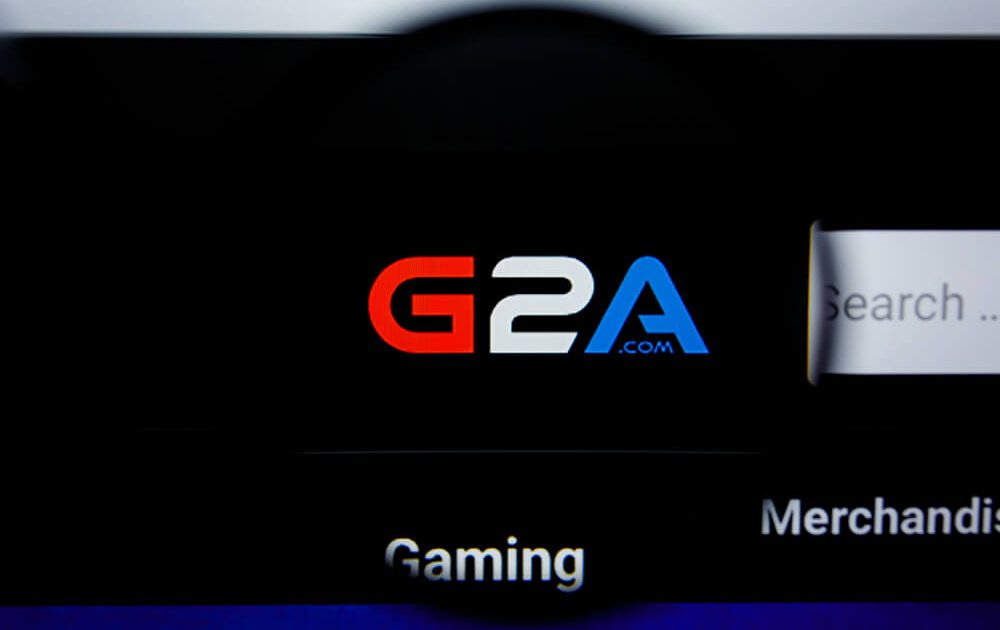- G2A is paying out nearly $40,000 to developer Wube for the sale of fraudulently obtained game keys.
- Last year, G2A offered to reimburse developers ten times the cost of charge-backs on the condition they could provide proof of fraud and would agree to an independent audit.
- G2A failed to find an auditing company that met its requirements, switching instead to a shady internal investigation.
Shady game key reseller, G2A, announced yesterday the results of a near year-long audit designed to debunk accusations that it facilitated the sale of fraudulently obtained digital products.
They are disappointing, to say the least.
G2A is voluntarily compensating a single developer to the tune of roughly $40,000 for money lost on charge-backs for illegitimately obtained game keys.
Yes, one lone developer – indie outfit Wube Software of Factorio fame. It should come as no surprise, though.
G2A Offers To Reimburse Losses Tenfold
Last summer, G2A made a big song and dance about wanting to clear its name in the face of accusations of fraud and even money laundering. The marketplace offered to pay out ten times the cost of charge-backs on game keys obtained with stolen credit cards.
A generous offer, you’d say, but there was one big, ugly catch: the onus was on developers to prove that fraudsters had picked up the keys with stolen card details on their respective stores. Then, also demonstrate the resale of those sketchy keys on G2A’s marketplace.
Unsurprisingly, the uptake was miserable. The situation was so dire developers took to encouraging gamers to pirate games rather than buy them from G2A.
Forget being contrite, G2A made it as difficult as possible for developers to recoup losses directly linked to the company’s complete disregard for fostering a fraud-fueled marketplace. For developers already losing thousands of dollars due to charge-backs, this wasn’t the transparent vindication they’d hoped for.
To ostensibly ‘assure honesty and transparency,’ G2A said it would draft in an independent auditor to make an ‘unbiased examination.’ The company would front the first three audits, but beyond that, developers would need to cover half the cost.
A Not So Independent Audit
A year on, G2A failed to deliver even on that front. In a blog post sharing the news – ironically titled ‘Keeping Our Promise’ – G2A notes:
After assessing a number of independent auditing companies and finding none that would meet our agreed requirements, Wube and G2A decided that G2A should proceed with an internal investigation.
What was it about those ‘requirements’ that meant not one auditor was willing to agree to them? Is fraud so prevalent that an independent audit would see the marketplace pay out millions to affected developers?
It doesn’t get any shadier that an internal investigation from a heavily-scrutinized company with a proven track record of facilitating fraud. At the risk of stating the obvious, G2A found itself guilty.
If an internal investigation led to the discovery of 198 fraudulent keys for one developer, surely an independent audit would reveal just how rampant the problem is across the broader marketplace.
Fraud ‘Hurts’ The Marketplace, But The Onus Remains On Developers
Unsurprisingly, littering the blog post are PR-vetted platitudes, including this gem:
We wanted to send a clear message to the gaming community that fraud hurts all parties. As we spell out in this blog, fraud directly hurts individuals who buy illegitimate keys, it hurts gaming developers, and it ultimately hurts G2A because we are forced – as the transaction facilitator – to cover costs related to the sale.
If it hurts G2A, why hasn’t the marketplace done more? Why are developers forced to jump through so many hoops?
G2A’s combative stance doomed the process from the start. And, although Wube is recouping some of its losses with an overdue check for $40,000, the entire matter leaves a bitter taste.
G2A’s track-record frames this as yet another misguided attempt to redress a reputation that’s already in tatters.
Disclaimer: The opinions expressed in this article do not necessarily reflect the views of CCN.com.
This article was edited by Samburaj Das.




